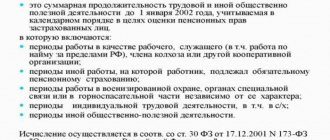Sometimes it happens that the debtor (in order not to pay his financial obligations) decides to run away. Often, he hides his property as carefully as possible. And here we are talking not only about paying off the loan debt, but also about alimony. The search for such a debtor takes place according to the norms of enforcement proceedings.
Dear readers! The article talks about typical ways to resolve legal issues, but each case is individual. If you want to find out how to solve your particular problem , contact a consultant:
+7 (499) 938-81-90 (Moscow)
+7 (812) 467-32-77 (Saint Petersburg)
8 (800) 301-79-36 (Regions)
APPLICATIONS AND CALLS ARE ACCEPTED 24/7 and 7 days a week.
It's fast and FREE !
Circumstances under which a search is declared
The search is regulated by Article 65 of Federal Law No. 229. It spells out the circumstances under which there is a need to search for debtors or their property if the bailiffs do not know anything about their whereabouts.
A search is announced at the last place of residence of the person with the debt. This factor becomes the basis for a search throughout the country.
The law specifies specific cases when a debtor must be put on a national wanted list. This happens if there is no information about his whereabouts and if the executors of court decisions have claims against him.
Primary requirements:
- claims for the removal of a minor child;
- the debtor has not repaid the loan and is avoiding paying it;
- the debtor must compensate for damage caused to human life and health;
- has arrears in child support.
To have the right to put a debtor on the wanted list, the bailiff must first take steps to locate the citizen with the debt.
Who can put you on the wanted list?
A decision to introduce a search regime can only be issued by a FSSP specialist. The claimant is given the right to submit an application to initiate a search, appeal the refusal to make a decision, and assist in the search for the defaulter and his assets.
According to Art. 65 of Law No. 229-FZ, the obligation to declare a search arises in the following cases:
- if a debt in excess of 10 thousand rubles is collected. in favor of the state, constituent entities of the Russian Federation and municipal bodies (for example, arrears in taxes, taxes on fines, etc.);
- if the requirement to collect alimony payments is fulfilled;
- if the subject of the proceedings is compensation for fines and damages from a crime, payments to compensate for harm to life and health.
In these cases, the bailiff must, on his own initiative, issue a resolution or satisfy the claimant’s application. The FSSP officer must make a decision on the claimant’s application within 3 days.
The law provides for a number of grounds under which the bailiff has the right, but not the obligation, to introduce a search regime:
- if a non-property obligation cannot be fulfilled without the personal presence of the debtor;
- if the property claim exceeds 10 thousand rubles, and it is impossible to fulfill it without the debtor;
- the search for assets can be carried out in any proceeding if the amount of debts exceeds 10 thousand rubles.
Having established these circumstances, the bailiff can himself issue a resolution, referring to Part 5 of Art. 65 of Law No. 229-FZ. For the same reasons, the claimant can also submit an application, and the FSSP specialist must give a reasoned response within 3 days.
Other persons do not have the right to declare a search in the proceedings. If the defaulter has become a defendant in a criminal case (for example, for malicious evasion of alimony payments), his search will be carried out in accordance with the norms of the Code of Criminal Procedure of the Russian Federation, and not Law No. 229-FZ. If the search in the enforcement case brings results, the citizen does not face restriction of freedom or other criminal sanctions. However, during the investigation of criminal cases, the found debtor may be taken into custody, placed under house arrest, etc.
Who can announce
The bailiff has the basic rights to place a debtor on the wanted list. He can do this at his own discretion or if the claimant has written a corresponding statement.
This procedure cannot be called simple, since it contains a lot of bureaucratic costs. First of all, you need to collect a complete package of documents that will contain the requirements for the debtor.
You can put someone on the wanted list according to the following documents:
- if execution of a court decision is impossible without the presence of the debtor - in accordance with an executive document of a non-property nature;
- if the debtor must pay less than 10 thousand rubles and enforcement proceedings are impossible without his participation - a writ of execution with requirements of a non-property nature;
- if the debt is more than 10 thousand rubles, the search takes place on the basis of a writ of execution with a property nature, as a result of which the search for the debtor’s property begins.
These clauses apply to both debtors with the status of legal entities and individuals.
What actions can be taken?
The enforcement search for the property of the debtor or direct defaulter involves the performance of certain actions by the bailiff. The most effective and popular activities include:
- If a citizen or his property is located in a region where the bailiff cannot use his powers, then he can invite the chief bailiff of that city to cooperate.
- When a citizen is detected, the requirements of the writ of execution are enforced.
- Various activities aimed at finding the defaulter are being planned.
- Control is exercised over the activities of persons who have the authority to search for a citizen.
- If illegal actions on the part of officials are revealed, they can be appealed in court by any participant in the process.
Most often, bailiffs engage employees of the Ministry of Internal Affairs for such work. Additionally, you can use the help of private detectives. All officials involved in this process are responsible for the actions performed.
When and how to search for a debtor in enforcement proceedings for alimony
Often the search for debtors occurs because they evade paying alimony. The purpose of such a search is to establish his location and discover his property.
After the court decision is issued, the law “On Enforcement Proceedings” allows the commencement of proceedings in this case.
When can I announce
If the place of residence of one of the parents is known to the production, then a notification is sent to his address by employees of the executive service. After this, the bailiff can conduct a conversation about the duties, rights and responsibilities of the alimony payer.
To confirm the amount and regularity of income, the bailiff service officer sends a request to the relevant authorities. If it is practically impossible to do this, then the bailiff service has every right to put the citizen on the wanted list.
The legislation (Article 65) prohibits starting a search for a person before enforcement proceedings have been initiated in his case. Also, a search can be started only after all preliminary actions have not yielded any results and the debtor has not been found.
How
If it is not possible to seize the debt due to the fact that it is impossible to find the debtor (he does not appear on the summons), the SSP of the Russian Federation has the obligation to place the citizen on the wanted list.
The main purpose of searching for a debtor is to discover his place of residence, as well as the type and amount of income or property.
In order for the document to begin to be executed, it is transferred to the Ministry of Internal Affairs.
Legislative regulation
Important! Not only the debtor himself is being sought, but also the valuables in his ownership. Art. 65 Federal Law No. 229 contains information on how enforcement proceedings are carried out.
It states that if there is no information about exactly where the debtor is or his valuables, then the bailiff in charge of the proceedings can put the citizen on the wanted list. This process is carried out at the last place where the debtor had permanent registration or temporary registration.
Announcement of wanted debtor. Photo: valekse.ru
When a debtor is wanted
Putting a citizen on the wanted list is allowed only in a situation where there is no information about his whereabouts, and in this case it is necessary to collect a debt from him according to the requirements:
- payment of alimony;
- coverage of damages associated with the death of the breadwinner;
- selection of children;
- compensation for damage caused to human health;
- other financial requirements, which include non-payment of debt to the creditor.
The basis for searching for people is the writ of execution available to the bailiff.
What actions are carried out before a person is put on the wanted list?
Before directly putting a person on the wanted list, the bailiff must perform some preliminary actions that may lead to the discovery of the citizen or his valuables. Such events include:
- using the address bureau of the Central Internal Affairs Directorate located in the region where the debtor is located, and a search in this way provides information about the last place of registration of a particular citizen;
- search through the military registration and enlistment office;
- a request to the bureau of the Central Internal Affairs Directorate regarding the departure of the debtor from a specific place of stay;
- a request to the Pension Fund branch of a certain region, which will allow you to obtain information about the location of the debtor;
- interviewing neighbors or relatives of a citizen, which often makes it possible to find out about his place of residence;
- verification of the information received, which is used to study apartments, houses or dachas that allegedly belong to the debtor;
- sending a request to registration institutions to find out what property belongs to a citizen by right of ownership;
- request to a Sberbank branch.
Important! It is not allowed to put a citizen on the wanted list immediately after the start of enforcement proceedings, since the above preliminary measures must first be carried out, and only then can one begin to search for the person.
Drawing up an application
Most often, an application with a request to search for a debtor is submitted already during the execution of enforcement proceedings in the case when the actions of the bailiff are not effective enough for the search.
Applicants can be:
- collector - his role is played by the recipient of alimony (a citizen who is the guardian of a minor child);
- his representative is a person who has a power of attorney from the claimant, which must be notarized.
There are established samples of this document. One of them can be downloaded from the link.
Necessary information
To write an application you need to have a certain range of information, which must be indicated in the text of the document:
- the name of the unit of the SSP of the Russian Federation;
- full last name, first name, patronymic, address of the claimant;
- number by which enforcement proceedings are being conducted;
- details of the writ of execution and the requirements set out in it;
- all information that is known to the collector about the debtor (especially if it can help find the defaulter).
How to get money without leaving home? Read the article about microloans online without refusal. Find out further where interest-free microloans are issued on the card.
How to write
This document does not have a standard form; it can be compiled arbitrarily. The header must include the name of the SSP unit, last name, first name, patronymic of the representative of this service, information about the creditor and debtor.
The title of the application must reflect the entire essence of the request - payment of alimony, loan debt, etc. A link to the court decision (date, number) must also be indicated here.
In addition, the text should only mention accurate information about the time of termination of payments, the remaining debt, the funds needed to raise and support children, the circumstances under which payments of money stopped, and the reasons why contact with the debtor was lost.
The document must include a copy of the resolution stating that proceedings have been initiated against the debtor. If the applicant is a representative of the claimant, then he must attach a copy of the power of attorney to the application.
The document must be drawn up in two copies - one for the enforcement service, the second for the claimant.
Refusal to search
In some situations, the bailiff may refuse to allow the creditor to search for the debtor. There should only be good reasons for this. The creditor has the right to appeal such a decision, for which he can draw up a written claim. It is sent to the head of the FSSP department, as well as to the prosecutor’s office or court.
The complaint must include the following information:
- information about a specific case;
- actions performed by the bailiff, who is the executor in this case;
- the reason for refusing to search for the debtor;
- references to legislative acts that were violated by the bailiff.
If it is indeed recognized that the refusal is unlawful, then the bailiff will be held accountable.
After the Decree
After submitting the application, no more than three days must pass before it is considered. The result of this procedure should be a Resolution, which is issued by the bailiff. The resolution must indicate that the person is being put on the wanted list or the refusal to do so.
For the debtor, the execution of this document automatically means a ban on traveling abroad. The Resolution must indicate the entire list of actions that will be taken for the search.
It may include:
- request for information about the debtor and his income;
- information from friends and relatives;
- working with documents that relate to this process;
- analysis of the defaulter’s property, his houses and apartments, vehicles.
The bailiffs have every right to use all the information provided to them by the claimant. Also, if they discover any property of the debtor, they have the right to seize and sell it against the debt.
How it happens
Bailiffs have the right and opportunity to submit requests to all necessary authorities to obtain accurate information about the debtor. Among them the following institutions can be noted:
- financial institutions that issue loans to the public;
- traffic police;
- to social insurance funds;
- Pension Fund;
- to state register authorities;
- Federal Tax Service.
All information that can be obtained from these services is aimed at determining data about the property and income of the wanted citizen. If all the information has been successfully obtained, then deliberate evasion of debt can be established.
Property may be seized by bailiffs, and the debtor himself may face administrative and criminal liability.
Criminal liability awaits the defaulter if he hid from the investigation for more than a year, hid his income and place of residence.
Grounds for search
The main task of FSSP specialists is the execution of judicial or other acts - withholding the amount of the debt, seizing and transferring specific things to the creditor, re-registration of property rights, and other types of claims. When sending an application and enforcement documents to the FSSP, the claimant can immediately indicate the debtor’s place of residence and work, a list of property and its actual location.
A FSSP specialist can obtain similar information by sending requests to registers and authorized agencies. For its part, the debtor is obliged to immediately notify the bailiff of moving to a new place of residence, dismissal from work or employment at another enterprise.
If information about the debtor’s address or location of assets could not be obtained, or the obligated person evades appearing at the FSSP, a search may be launched. According to Art. 65 of Law No. 229-FZ, this measure is introduced according to the following rules:
- the search regime is introduced by a resolution of the official in charge of the case, and the document must be approved by the head of the FSSP unit;
- after the resolution is issued, a set of enforcement and investigative measures will be carried out, including the introduction of other restrictive measures (travel ban, deprivation of the right to drive transport).
The law specifies a list of grounds under which a FSSP specialist is obliged or has the right to issue a search warrant. The claimant may also make a similar request.
Search activities are announced:
- at the place of performance;
- at the last address of residence or stay of the obligated person;
- at the location or storage of property assets;
- at the address of the claimant.
In the resolution, the bailiff will indicate which actions and events will be carried out as a matter of priority. As soon as the investigative actions bring results, the decision will be canceled and the proceedings will continue according to the general rules.
Sample application to search for a debtor and his property
Debtor's actions
The debtor's punishment overtakes him only after the bailiffs find him. The law sets certain deadlines for paying off their debts. If during this time he has not paid the required funds, then the bailiff has the right to prohibit him from traveling abroad.
If a defaulter interferes with bailiffs in the performance of their duties, then the civil servant has the right to file a claim for an administrative offense in court. According to it, the court can collect a certain fine from the violator.
What rights does the bailiff have?
As part of the enforcement search for a debtor, the bailiff may use the following powers:
- sending requests to banks or other government and commercial institutions in order to obtain various information about the debtor and his location;
- processing of received information and personal data, not only about the direct debtor, but also about various property that belongs to him;
- use of information received from the claimant and other persons.
Carrying out private detective work is a paid process, so the bailiff has the right to demand reimbursement of his costs from the debtor after he has been found.
Making a statement
An application to initiate a search can be submitted to the bailiff by the creditor (collector). Without touching on the nuances of searching for a child whose location was caused by the unlawful actions of one of the parents or relatives, we will focus on the procedure for searching for a person and property.
Filing an application to search for the debtor and property is not difficult. We recommend using the forms posted on the websites of regional FSSP departments or templates on legal websites on the Internet. An example of such a statement can be a SAMPLE posted on the website of the Federal Bailiff Service of the 74th region of the Russian Federation.
The procedure for searching for a hiding subject









